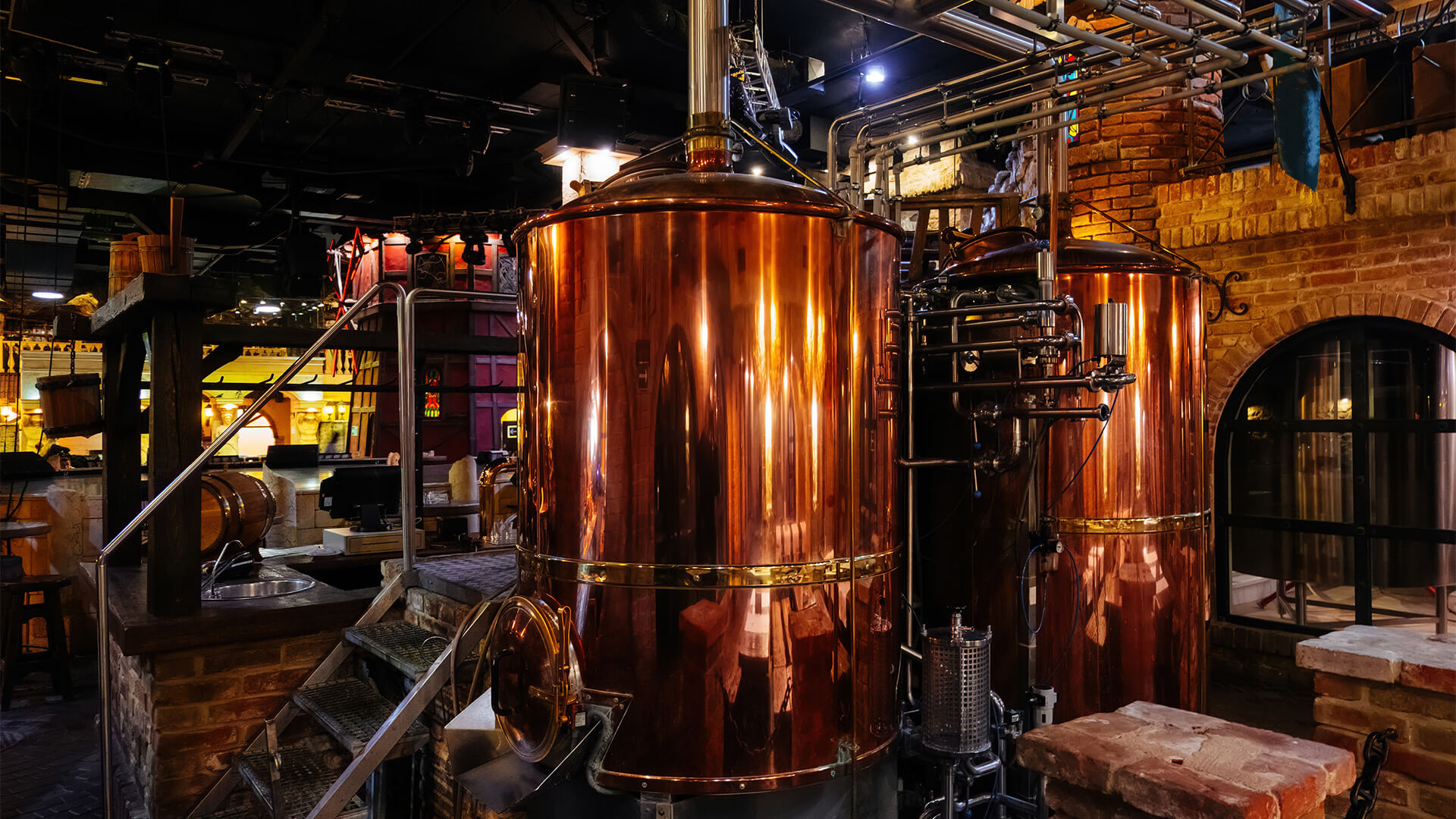
Over the recent years, microbreweries have been cropping up all over the UK from the likes of Brewdog, Tyneside Brewery and Wychcraft to list a few.
Craft beer – comprising everything from tart ‘sours’ to ‘coffee porters’ – is now estimated to make up 6.5% of all beer sales in the UK. There are over 2,000 UK microbreweries now in production, with more popping up weekly. But when it comes to creating quality over quantity, there’s no mistaking that running a microbrewery can be an incredibly energy-intensive process.
One large challenge faced by entrepreneurs looking to create an artisan beer is what energy supply is best to use (particularly if they’re off the mains gas grid), as well as how to keep costs to a minimum, and what bespoke flavor will help the beer bubble up in the collective consciousness. In this piece, Flogas – a UK supplier of LPG gas bottles, cylinders and tanks -offer some useful advice on starting your own microbrewery.
Your equipment will be key!
It doesn’t matter if you’re a dedicated and passionate connoisseur of the craft game; if you don’t make a profit, your might as well pour that passion down the drain. There is no brewery without viable business, after all. Microbreweries are notoriously difficult to get off the ground financially, so by doing things right early on, you can give a boost to your company’s profit margins in the often difficult teething stages.
Equipment is king. As you’re a small start up, durability is really important; constant breakdowns in your process will not only be expensive in terms of buying replacements, but also affect your tight profit margins at a time when cash flow walks a fine tightrope and peril stalks close behind. One of the main components in the brewing process is the mash system, which is commonly made up of the following:
- Malt mill – Crushes the grain in preparation for brewing
- Wort Pump – Re-circulates the mash for a higher efficiency, enhancing the clarity and quality of the brew
- Plate Heat Exchanger/Wort Chiller – Quickly cools the hot wort ready for fermentation
- Mash tank – Steeps barley into hot water and converts grain starches into fermentable sugars
- Lauter tun – Separates the wort (or liquid) from the solids of the mash (much like a sieve)
- Steam generator – Heats the kettle, which is then brought to a controlled temperature before the hops are added
Make sure you know this system inside out, so you can quickly get everything functioning at full capacity. Foolproof understanding of your equipment comes before creating of a great product.
Other necessities
Aside from this mashing stage, you’ll also need a fermentation system (where yeast is added and sugar turns into alcohol), a cooling system (to prevent bacteria growth and where beer can be stored ready for sale), a filtering system (to get rid of sediment for a higher-quality product) and, of course, sterilisation equipment (to ensure that bacteria doesn’t spoil your next batch of beer). There really is nothing more heartbreaking than brewing a batch of beer with love and commitment, only to find out that in the quality control stage that it’s tainted or ruined.
And what about … ingredients?
Having the right equipment is important, but there’s an even more decisive factor at play here. The ingredients you choose will dramatically impact the taste and consistency of your beer, and as such are the key consideration in the infant stages of your brewery. As a newcomer to this game, in an every more crowded market, so much is about a distinctive flavour profile which raises your head above the parapet. With so many flavour combinations available, the possibilities are endless when it comes to creating something truly stand out. But no matter how distinctive the taste, you’ll find all craft beer is made up of the following key components:
- Water – Water makes up around 90 percent of any beer. The pH and mineral content of your chosen water, as well as if it’s hard or soft, can affect the end result. so monitor this carefully. Simply chucking basic tap water into your master recipe won’t get the results you’re after, that’s for sure.
- Barley – The percentage of your beer is decided largely by barley. It can also dramatically affect the body, taste and aroma of your finished product.
- Hops – If you’ve ever queried where your favourite beer gets its flavor from, there’s a big chance it’s the hops. There are around 170 variations, meaning there’s plenty of choice when it comes to playing with flavour.
- Yeast – It may be invisible, but it’s a key ingredient in any good beer nonetheless. Yeast has been used in beer brewing for centuries, and deserves respect. Essentially a fungus, yeast eats the sugars created in the malting process. By allowing it to ferment and feed off the sugars, alcohol is created as a by product.
Don’t neglect your energy
It’s not an easy task to launch your own microbrewery. Along with all the complications of the brewing process, the last thing you’ll want to worry about is extortionate energy prices, or an unreliable supply. If you’re connected to the grid and require a commercial gas deal, or you’re in a rural area and need a dependable supply, it’s important to make a wise choice. LPG is a cleaner, cheaper and more efficient fuel and can provide major energy cost savings. With the lowest CO2 emissions of any fossil fuel, it’ll also mean a lower carbon footprint for your microbrewery.








